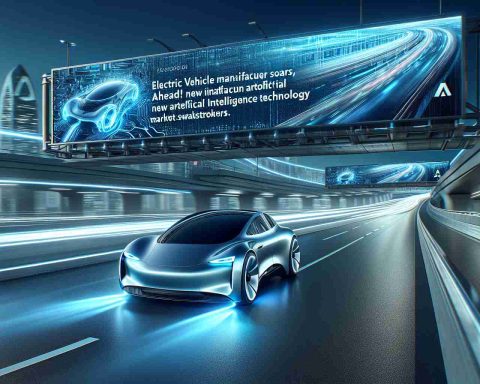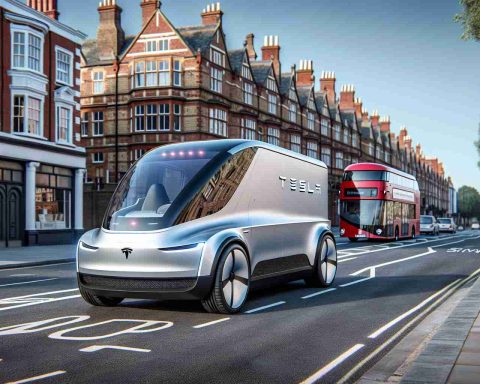Michigan, the heart of American car culture, is embracing an electrifying transformation in law enforcement. The state has launched its inaugural all-electric police vehicle, a significant leap into sustainable policing.
The groundbreaking 2024 Ford Mustang Mach-E has been designated for the Michigan State Police’s State Security Operations Section. This vehicle will serve armed officers tasked with maintaining law and order at various state facilities in the Lansing area.
According to Col. James F. Grady II, the director of the Michigan State Police, this initiative is a chance to observe the real-time performance of an electric vehicle while on patrol. The officers in this section typically cover fewer miles and operate at lower speeds, making Lansing’s well-established charging infrastructure an ideal location for conducting these tests.
The Michigan State Police is renowned for its rigorous vehicle evaluations, with numerous officers experimenting with electric cars to gauge their viability. Historically, the fleet has primarily consisted of hybrid vehicles until now; Lt. Nicholas Darlington noted that the introduction of the electric Mustang Mach-E would enable a thorough analysis of potential long-term cost benefits for the entire fleet.
Following in the footsteps of states like Wisconsin and California, Michigan is positioning itself at the forefront of eco-friendly policing solutions, looking forward to possible savings in fuel and maintenance as the nation shifts toward greener technology.
The Implications of Transitioning to Electric Law Enforcement Vehicles
The adoption of electric vehicles (EVs) in law enforcement, as exemplified by Michigan’s introduction of the all-electric Ford Mustang Mach-E, heralds profound ramifications for society and the global economy. Law enforcement agencies are crucial components of community trust and safety; transitioning to renewable energy sources exemplifies a commitment to sustainability that can resonate with the public. This move may reinforce the ethical responsibility of police departments to model environmentally sound practices, potentially influencing public perception and increasing community support.
From an economic standpoint, as police departments shift toward electric fleets, there is potential for significant reductions in operational costs. With rising fuel prices and maintenance costs associated with traditional gasoline vehicles, this transition could allow funds to be redirected toward critical public safety initiatives. The trend paints a hopeful picture for future budgeting not only for law enforcement but for municipal governments as a whole, fostering an environment where sustainability aligns with fiscal responsibility.
Moreover, the environmental implications cannot be understated. More electric police vehicles on the streets could enhance air quality in urban areas, contributing to broader efforts in combating climate change. As more states and municipalities adopt similar programs, the cumulative effect could lead to substantial reductions in carbon footprints. Looking ahead, this trend could catalyze the automotive industry to innovate further, developing not only police vehicles but also commercial and personal fleets that prioritize sustainable technologies, leading society toward a greener future.
The Future of Law Enforcement: Michigan’s Electric Police Vehicles
Introduction
Michigan is on the cutting edge of sustainable law enforcement through its adoption of the all-electric police vehicle, starting with the 2024 Ford Mustang Mach-E. This transition signifies a broader trend towards greener practices within law enforcement agencies across the United States.
Innovations in Policing
The 2024 Ford Mustang Mach-E, deployed by the Michigan State Police for the State Security Operations Section, marks a pivotal moment in law enforcement’s evolution toward electric vehicles (EVs). This innovative vehicle will be utilized by armed officers responsible for maintaining security at crucial state facilities around Lansing. Its adoption reflects a growing recognition of the benefits that electric vehicles can bring to policing.
How the Mach-E Supports Law Enforcement Today
– Real-time Performance Analysis: As highlighted by Col. James F. Grady II, the Michigan State Police are seizing this opportunity to closely monitor the Mach-E’s performance in real-world patrol scenarios. This is vital for assessing factors such as acceleration, handling, and battery life under operational conditions.
– Optimal Use Cases: The officers in the Lansing area typically travel shorter distances and operate at lower speeds, making it an ideal setting to test the electric vehicle’s capabilities. The presence of a robust charging infrastructure in Lansing supports this initiative, allowing for convenient vehicle management.
Advantages of Electric Police Vehicles
Pros:
1. Cost Savings: Potential long-term savings on fuel and maintenance costs make electric vehicles an attractive option for state budgets.
2. Environmental Impact: The shift towards electric vehicles contributes to reducing the carbon footprint of law enforcement agencies, aligning with broader state and national sustainability goals.
Limitations to Consider
Cons:
1. Range Anxiety: Although the Mach-E can handle typical patrol routes, concerns about battery life for long-duration missions may arise.
2. Initial Investment: High upfront costs for electric vehicles can pose a barrier, even though savings may follow in the long run.
Insights into the Future of Law Enforcement
Adopting electric vehicles is part of a larger trend in sustainable practices within various sectors. As other states, including California and Wisconsin, have begun to explore similar paths, Michigan’s move serves as a model for eco-conscious policing strategies. Innovations in battery technology and charging infrastructure will be key to driving this movement forward.
Predictions
As the electric vehicle market continues to mature, law enforcement agencies are likely to expand their fleets with additional electric models. Stakeholders anticipate increased efficiencies, enhanced public perceptions of policing, and advancements in law enforcement technology.
Conclusion
Michigan is setting a significant precedent in the police sector with its shift to electric vehicles, showcasing the potential benefits and exciting future this movement heralds. The state’s strategic embrace of the Ford Mustang Mach-E embodies its commitment to sustainability, efficiency, and innovative law enforcement practices.
For more insights and updates about the evolution of law enforcement in Michigan and elsewhere, visit Michigan State Government.


















